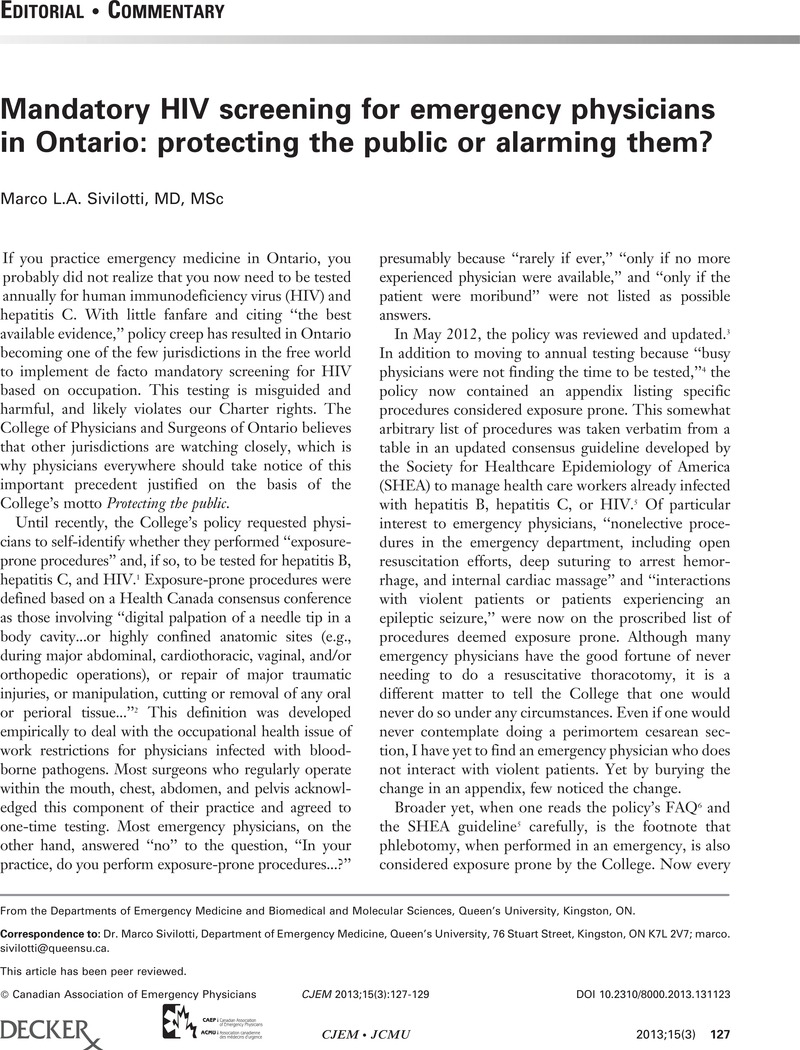Crossref Citations
This article has been cited by the following publications. This list is generated based on data provided by Crossref.
Webber, Valerie
Bartlett, Janet
and
Brunger, Fern
2016.
Stigmatizing surveillance: blood-borne pathogen protocol and the dangerous doctor.
Critical Public Health,
Vol. 26,
Issue. 4,
p.
359.



